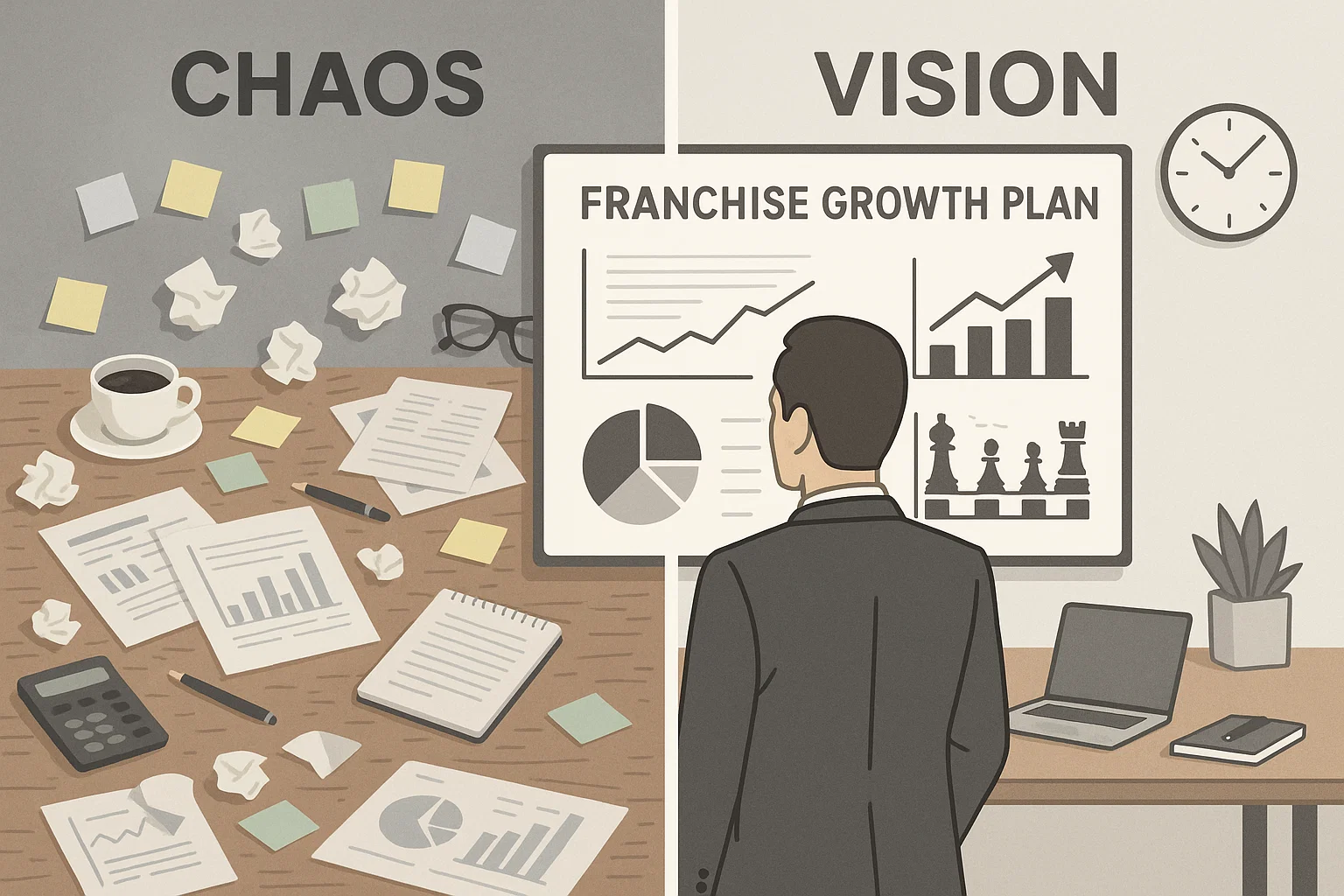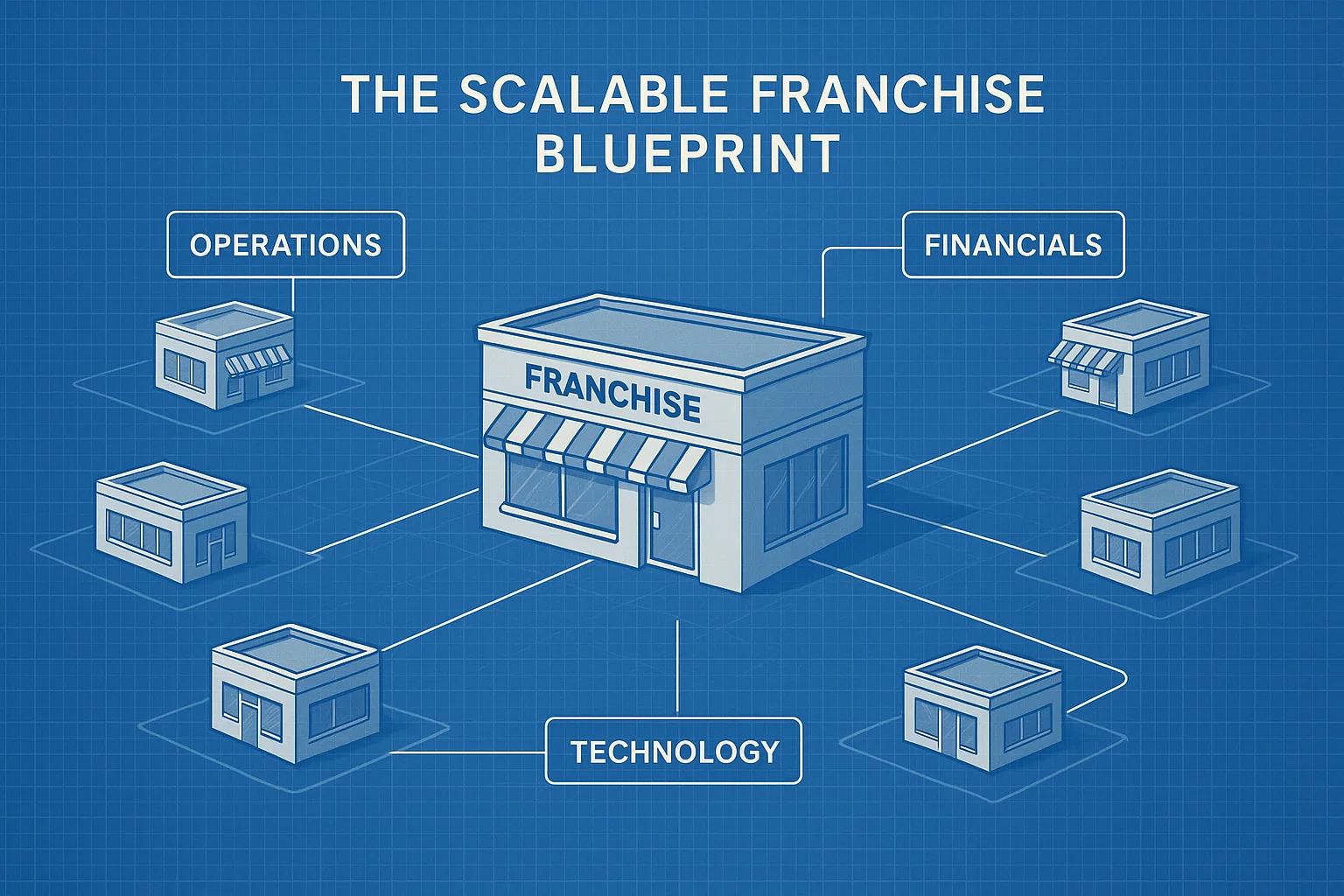Image created with canva
WHY EVERY EMERGING FRANCHISOR NEEDS AN ORGANIZATIONAL CHART TASK DESCRIPTIONS PEOPLE PLAN AND FIVE‑YEAR GROWTH MODEL—NOT AFTER‑THE‑FACT CRISIS MANAGEMENT
By FMM Contributor
Is your franchising dream built on reacting to chaos or a vision‑driven roadmap? Discover why the real power lies in planning—designing an organizational chart clearly defining roles crafting task descriptions building a people plan and financial plan and laying out a five‑year growth model. This is your wake‑up call: solid foundation beats scramble every time.
The Planning Imperative—for Startups and Emerging Franchisors
- Build Structure with an Organizational Chart
An organizational chart provides a transparent map of reporting lines responsibilities and decision flows. It defines who reports to whom what each person owns and where handoffs happen
Without it tasks get lost communication breaks down and franchisor‑franchisee alignment falters. From day one even small teams benefit from clarity.
- Clarify Roles with Task Descriptions
Pair your org chart with task outlines for each role. This prevents scope creep overlap and confusion. Clearly defined responsibilities ensure accountability and let team members own their work.
This structure encourages franchisees to replicate your system confidently and consistently, critical as you scale.
- Create a Five‑Year Growth Model
A five‑year growth model projects the milestones and resourcing you need to scale. Forbes notes investors expect vision backed by corporate structure
Kruze emphasizes setting your financial plan around your vision and reviewing it quarterly to stay on track
- Build a People Plan
Planning headcount by function—and timing when to hire—is a growth accelerator. An early‑stage startup’s small finance function evolves dramatically as you scale. Designing hiring and promotion paths ensures you have the right talent when you need it.
- Secure with a Financial Plan
A financial plan with budgeting forecasting KPIs cash‑flow scenarios and profitability targets is your internal GPS. It deepens insight across expense hiring and investment decisions. It also signals credibility to investors who expect discipline not hope.
Why “Firefighting” Does Not Scale
Lean Startup methodologies teach rapid iteration and feedback—but never confuse that with winging it without structure
Waiting until problems emerge means sacrificing consistency performance and brand standards in franchisees. It invites burnout breakdowns and misses opportunities. Instead:
- Use your org chart to clarify escalation paths before conflict arises
- Use task descriptions to avoid duplication and drift
- Use people plan to recruit ahead not react when roles fall apart
- Use financial plan and forecasting to spot issues early not after they become crises
Integrating All Five Elements
| Component | Function in Franchisor Strategy |
| Org chart | Transparency hierarchy and accountability |
| Task descriptions | Role clarity and operational consistency |
| Growth model | Timeline‑based milestones and scaling plan |
| People plan | Recruitment training progression roadmap |
| Financial plan | Budget forecasting KPI tracking investor pitch support |
Each part is a pillar of a franchise ready for scale. They connect and reinforce each other, misalignment in one can weaken the whole structure.
Real‑World Benefits
- Investor confidence: Clear structure and forecast models boost credibility
- Operational consistency: Franchisees know how to replicate the system without constant hand‑holding.
- Agile growth: Spotting trends early allows pivots before they become problems.
- Team clarity: Employees know reporting mentors and promotion pathways, increasing engagement.
- Brand protection: Standardized roles and finances maintain quality across locations.
Conclusion
Waiting for problems to appear and then reacting is playing Russian roulette with your brand. A forward‑thinking franchisor builds the blueprint from day one: organizational chart task descriptions people plan growth model and financial plan. This isn’t bureaucracy, it is resiliency. Stick to the plan revisit it quarterly and you’ll build a brand on rock not sand.
This article was researched, outlined and edited with the support of A.I.










